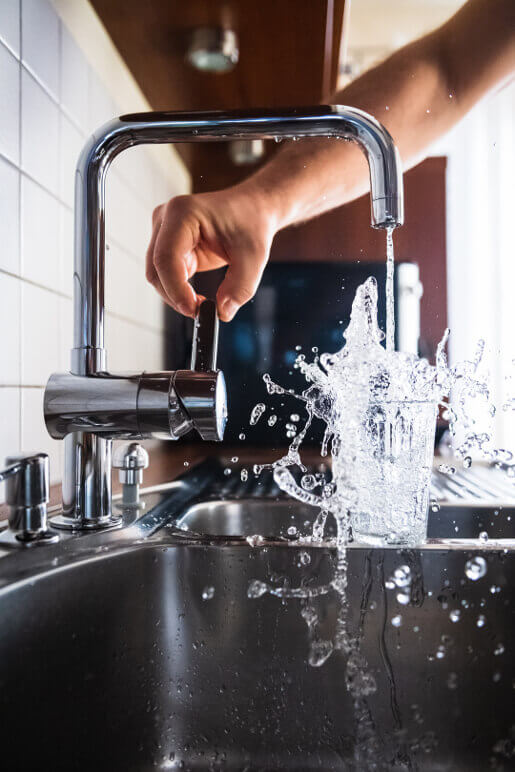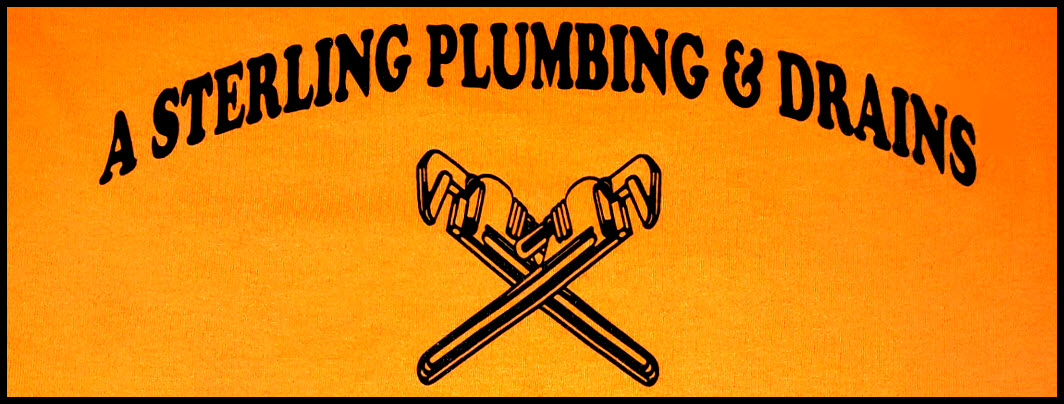A Sterling Plumbing Blog
Plumbing Articles from Columbus, OH
How to Prevent Main Drain Clogs

What’s worse than having a clogged drain pipe that won’t drain your shower, sink or laundry machine?
Well, it has to be a clogged main drain pipe. When the main drain clogs, it means that every other drain pipe attached to it in your household or office will clog up simultaneously.
Hence your sewer system comes to a standstill, and you can’t even flush the toilet successfully. Now imagine having guest over and the stench from the unflushed toilet fills the home or the office.
If you have experienced such a situation then you know it can take place at the worst time. Furthermore, it is costly to fix. Hence, the best way to avoid such a scenario is by applying preventative measures.
If you are curious as to which measures you can take to prevent your main drain pipe from clogging, you are in the right place. To learn more, have a look at the following measures below.
1. Be on the Lookout For Warning Signs
Drain pipes clog as a result of an accumulation of slug which creates a blockage in the pipeline. In most cases, a single drain pipe will clog up once in a while, particularly a shower or sink drain.
However, if you notice a gradual slow down in the draining capability of the entire system; you need to have it checked. Chances are your main drain pipe is about to get clogged, and hence, your sinks, showers and other drain pipes are not draining water as quickly as they usually do.
It is better to have a drain cleaning service fix the issue before a complete clog happens. This will help you avoid the embarrassing scenarios mentioned above.
2. Get Your Main Drain Checked Out
If your main drain pipe gets clogged up every few months or at least once a year, chances are there is a more severe issue. For example, a burst drain pipe.
As trees grow, their roots extend further and further underground. In most cases, when old drain pipes get damaged, they can let in soil which can build and clog the pipe; causing a clog.
Hence, if a clog in the main drain is a common occurrence, have a certified plumber, or the sewer company have a look at it. They can perform a camera sewer inspection down the pipe to investigate the cause of the repetitive clogging.
Having the issued fixed permanently can prevent numerous clogs in the future as well as save the costs of having them fixed.
3. Make Use of a Mesh Lint Traps
Accumulated hairs, fabrics, lint and tissues will often get your laundry drain clogged as well as your sink and shower drains. If all these items make it to the main drain pipe, they will accumulate along the walls, and a clog will ensue.
However, you can prevent a mainline clog from happening by ensuring they don’t make it to the drain in the first place.
You can achieve this by making use of a mesh flint trap in your washers drain pipe.
A flint catcher will stop the small bits of fabric as well as lint from accessing the drain pipe. Hence, only water will flow down the pipe, thus preventing any accumulation of materials.
You should also install a mesh trap in the shower and sinks to trap hairs and undissolved pieces of soap.
A flint catcher may be an extra expense, but it is a lot cheaper than what it will cost to unclog the main drain pipe.
4. Let Bacteria Work for you
A substantial amount of the slug that leads to the main drain clog consists of organic matter from food and humans. Fortunately for you, certain types of bacteria break down organic matter.
Regularly adding this kind of bacteria down your main drain will ensure it doesn’t get clogged.
In fact, using bacteria is the best non-corrosive main drain cleaner you can apply. Additionally, these bacteria do not affect the bacteria utilized in your septic tank.
Just make sure you apply the bacteria when the drain system is not in use; i.e. when people are not at home. This gives the bacteria time to work on the organic matter trapped in the main pipe before it gets washed away.
5. Avoid Flushing Solids down the Sinks
Unfortunately, people do not realize how much damage they cause to their sinks by pouring food, dirt, cement, sand and other solids down the drain.
Eventually, these solids collect together and cause a clog of the main drain pipe. Substances such as cement can get attached to the drain pipe and considering it is designed to harden in water; this could become a severe problem.
Remember, hardened cement can’t get flushed away if it is attached to the wall of the drain pipe. Hence, if a clog consists mostly of cement, chances are you have to dig up your main drain pipe to remove it.
For food particles, ensure you clear off the plates before placing it in the sink or dishwasher. If you have to rinse materials such as soil and cement, use a basin/bucket to do it.
When the particles settle in the bucket, you can decant the water down the drain.
6. Flush Your Drains Occasionally
Most faucets getting installed in properties are water saving rated. Unfortunately, saving water translates to minimal flushing in your pipes.
These faucets save water by limiting the quantity that gets flushed.
As a result, your main drain pipe is gradually accumulating yucky stuff down there. A simple solution to prevent clogged drains is to occasionally flush water down your faucets and sinks.
The bacteria that help breakdown organic matter in your drain pipe works best in warm conditions. Hence, when flushing your main drain pipe, hot water gets recommended. This way, you solve two problems with one solution.
7. Don’t Pour Grease down the Drain
After using hot grease, restaurants often pour it down the drain.
Hot grease will flow down the drain quite well. Unfortunately, the second it starts to cool down the oil will solidify into a thick mass which will get stuck on the drain pipe.
Continued congealing and accumulation of the grease will eventually lead to a clog.
Hence, instead of pouring it down the drain, collect it in a jar and dispose of it in the trash.
Conclusion on How to Prevent Main Drain Clogs
Main drain clogs can become a frequent occurrence if you are not careful about what you let get into your drain. Especially if you pour grease and substances such as cement and sand, it can become complicated to unclog the drain.
However, if you use the tips elaborated above, you can prevent clogged drains in your property.
Are You in need of a certified plumber to have a look at your drainage issues?
Then get in touch with us today. Let our dedicated team of plumbers handle your drainage troubles.
Schedule a Job Quote
Serving Columbus, Grove City, Gahanna, Reynoldsburg & Surrounding Area's
FREE ESTIMATES
a. sterling plumbing
Full Service Plumbing Columbus, Ohio
A Sterling Plumbing Sewer & Drain
3555 Groveport East Rd
Columbus, OH 43207
(614) 332-6656
or Send Us an Email Here.
© 2018-2024 ASterlingPlumbingColumbus.com
– All rights reserved. –
Information on this website may not be re-used without prior written consent from A Sterling Plumbing.
HOURS & LICENSE INFO
Monday-Friday: Open 24 Hours
Saturday: Open 24 Hours
Sunday: Open 24 Hours
Ohio Licensed, Bonded, Insured
OH Plumbing Contractors License # OL-26324





0 Comments